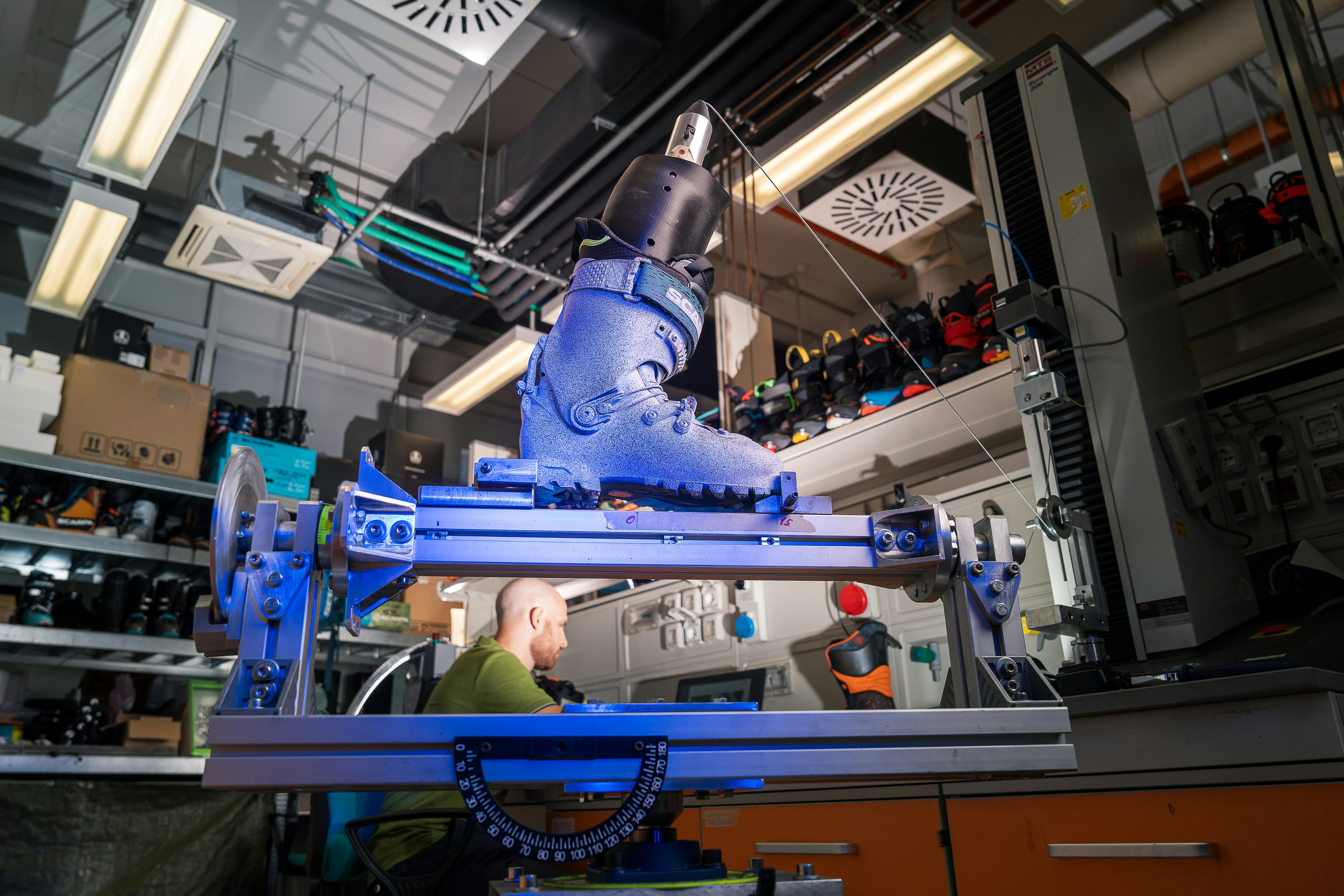Skimo means Grilamid
It’s the polymer that has revolutionized ski touring boots—and the new frontier is long fibers with bio-based content
- Author: Claudio Primavesi
- Photographer: Giovanni DanieliNicola Damonte

Lightness, rigidity and impact resistance, and a material that stays stable in all conditions. These are the qualities that have made the polymer Grilamid a game changer for ski touring boots. More precisely, Grilamid is a polyamide (PA12) patented by EMS-Grivory and distributed in Italy by Commerciale Isola Spa. As Eber Bosa, technical-commercial manager for North-East Italy explains: “Grilamids possess the property of remaining virtually unalterable: their structure is unaffected by sunlight, ozone and extremes of weather, and even after years of use, shells, spoilers and any part produced in Grilamid can be recycled by specialized companies that use controlled procedures, and can then be recycled to produce technical items.”

Lightness, rigidity and impact resistance, and a material that stays stable in all conditions. These are the qualities that have made the polymer Grilamid a game changer for ski touring boots.
The new frontier is Grilamid LFT (Long Fiber Technology), now also available in a Bio-Based version made from renewable sources such as castor oil. It’s reinforced by adding special 10 mm-long carbon or glass fibers that allow shells, cuffs and spoilers to be manufactured where high rigidity, impact resistance, elasticity and lightness are required. In practical terms, Grilamids are a lightweight, high-performance alternative to die-cast metals and composites. EMS uses a method called pultrusion, in which carbon or glass fibers are bathed in polyamide and then cut into 10 mm pellets. “The product’s fibers form a felt-like structure that provides greater reinforcement and enhanced rigidity and durability,” adds Bosa. Grilamid LFT Bio-Based products are part of Ems-Grivory’s GreenLine product family. They exist in three types with organic content of up to 92%, and technical properties comparable to those of fossil-based products, but result in a significantly reduced CO2 emissions.

Share this article

